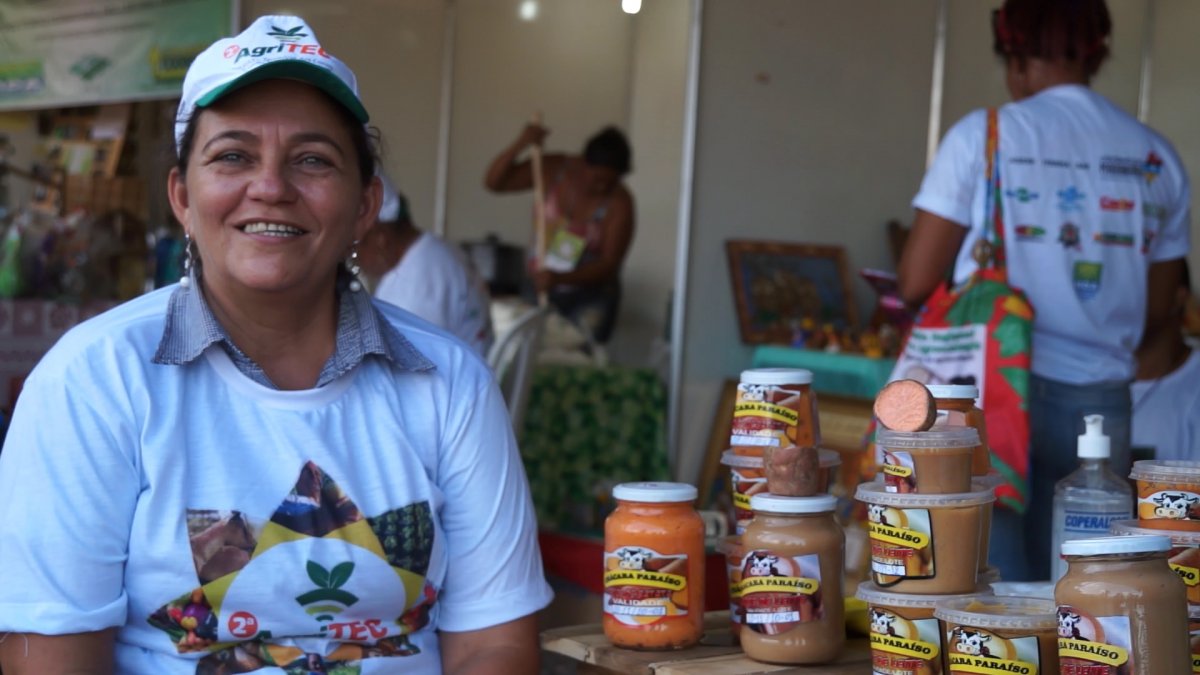Protagonism of Brazilian women scientists and farmers contributes to making Brazil a reference in fighting hidden hunger in LAC
Protagonism of Brazilian women scientists and farmers contributes to making Brazil a reference in fighting hidden hunger in LAC
Nowadays, Brazil is responsible for feeding about 20,000 people, from a total of nearly 50,000 beneficiaries in Latin America and the Caribbean, with vitamin-rich and mineral-rich foods – namely biofortified foods –, which, through conventional breeding, have higher micronutrient contents than conventional varieties. In the backstage of such scenario, we can shine a light not only on the researchers responsible for expanding the development of the technology, but also on those who are transferring it to consumers.
The leader of the Brazilian biofortification program and coordinator of HarvestPlus Latin America and Caribbean, Marília Nutti, is the one responsible for managing the strategies to publicize both technology transfer and research activities. Marília Nutti is also a researcher from Embrapa Food Technology, like her colleague, the researcher Izabela Miranda de Castro, who has held capacity-building courses on carotenoid analysis in countries like El Salvador and the Democratic Republic of Congo, strengthening the exchange of knowledge in important areas to fight nutritional insecurity.
Family farming has also been a conducive environment to have skilled women rural workers stand out. Ms. Antônia Lúcia Carvalho is one of the main characters of the Maranhão state rural zone, as she has achieved a certain level of success producing and selling biofortification-based processed products such as her famous jam from the Beauregard sweet potato. “In my property, I have been planting the biofortified sweet potato, beans and corn. I try to show other growers that this is an entirely natural product, without any contraindications”, says Antônia Lúcia Carvalho, who last year, in an event held to celebrate World Food Day, gave a minicourse to pass on techniques to prepare recipes such as sweet potato soup and tropeiro-style green cowpeas.
In the Brazilian Midwest, more specifically in the state of Mato Grosso, actions have had strong female leadership: the researcher Marilene Alves, from the Mato Grosso Agricultural Research, Technical Assistance and Rural Extension Corporation, who has coordinated Field Days and Technology Transfer activities in the countryside of Mato Grosso. Experimental Fields, Field Days and courses have been some of the tools developed to generate a positive impact in the state, which is a major grain producing region of the country. “We submit material to communities so that they can become able to produce in a larger scale, and then meet demand for school meals", says Marilene Alves about the goal of reaching public schools.
Translation: Mariana de Lima Medeiros
Raphael Santos (MTb 35.303/RJ)
Embrapa Food Technology
agroindustria-de-alimentos.imprensa@embrapa.br
Phone number: +55 21 3622-9739
Further information on the topic
Citizen Attention Service (SAC)
www.embrapa.br/contact-us/sac/

